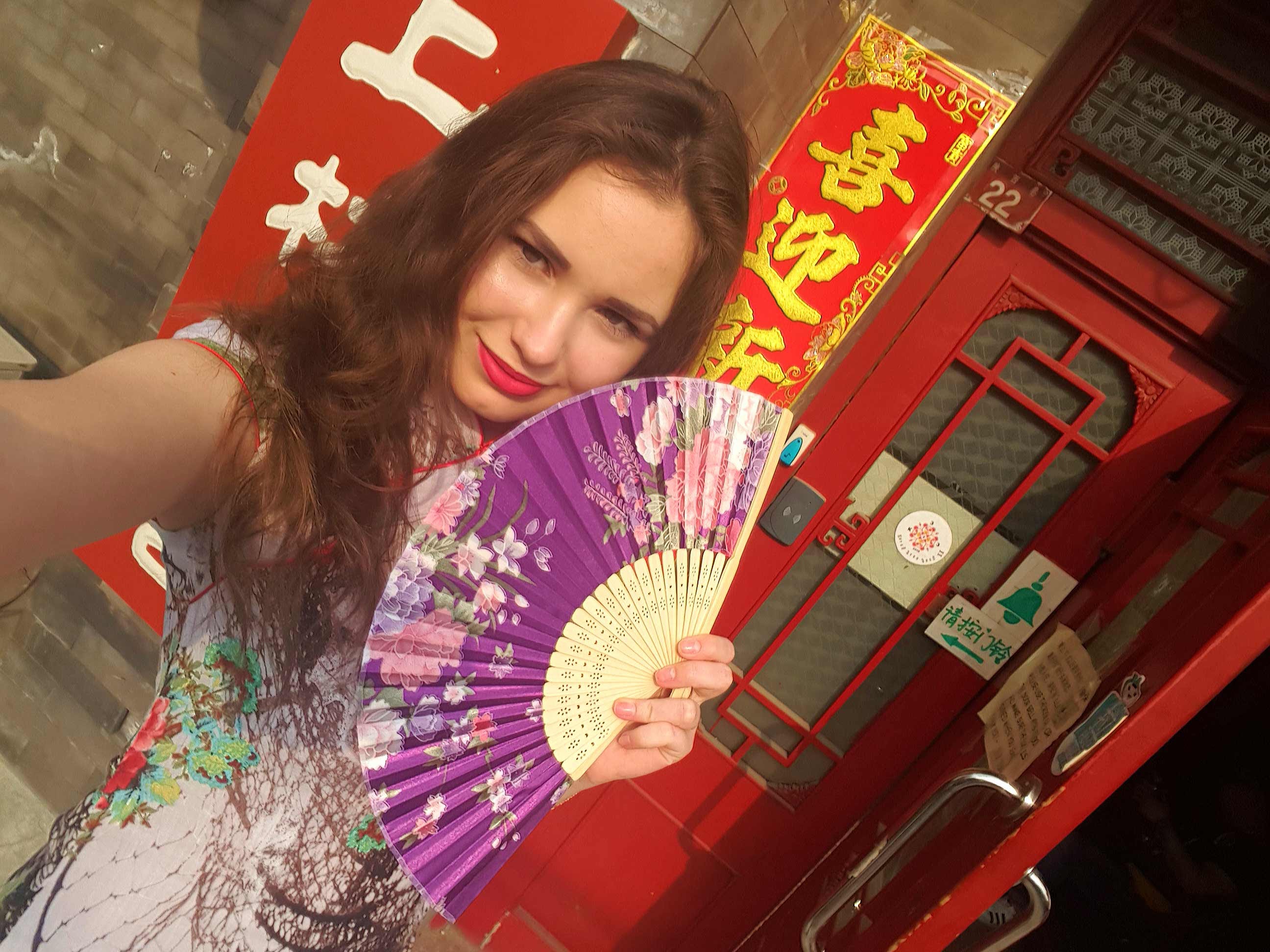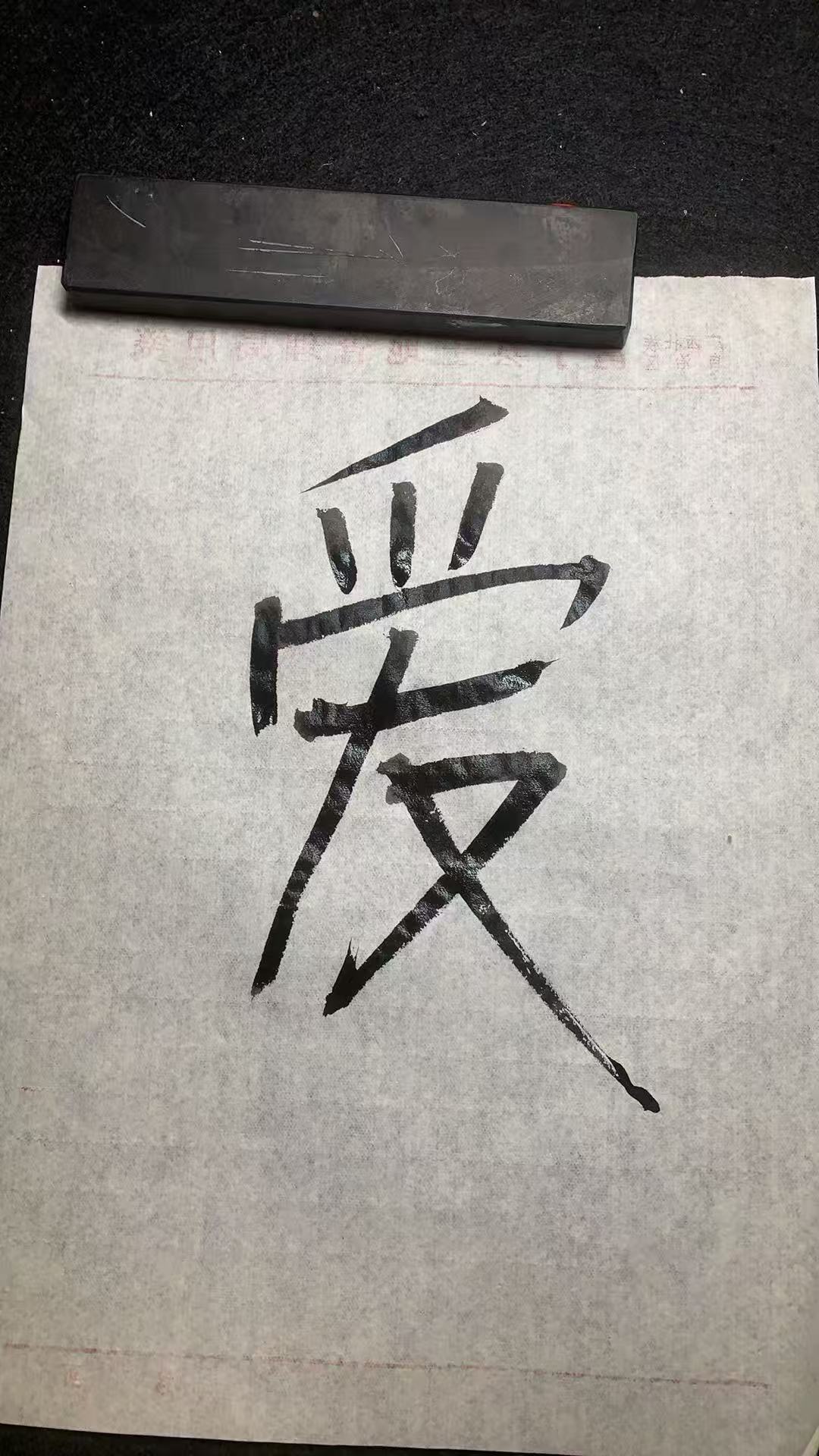How Shenzhen chose me
Writer: Jane Kozlova | Editor: Rao Guoting | From: Original | Updated: 2025-07-04
"I didn’t choose Shenzhen. Shenzhen chose me. 这是缘分 (This is fate)," I often reply with a smile when someone asks how I moved here. It’s been eight years now since I arrived in this vibrant city, but my story begins well before that.

Graduation from STP university in 2017.
In 2017, I graduated with a bachelor's degree in linguistics and translation from Saint Petersburg State University of Economics. I was ready for a short break before diving into adult life, maybe travel a little, and find a job slowly. But my mom had different plans. She took it upon herself to tell practically everyone she met that her daughter — a certified translator! — was job hunting. I think people in our city knew I was looking for work even if they didn’t know me personally.
One day, our landlord came over to collect rent. As usual, they made small talk, and somehow my job search came up. Less than a week later, he called my mom with a lead: a company in Shenzhen was looking for someone who spoke Russian and Chinese. The offer came about completely by chance. Our landlord had been selling his car, and the buyer had answered a phone call in fluent Chinese. Curious, the landlord asked him what he did. It turned out that his company in Shenzhen was actively looking for someone with my skill set.
At that point, I had no idea what or where Shenzhen even was. I had never heard of the city and didn’t know anything about Guangdong Province. My mom agreed before I even had a chance to think twice. Looking back, it still makes me laugh.
The company arranged a video interview via WeChat. I remember preparing so carefully. I placed one phone by the window to catch the best light and used another one, hidden just out of frame, to run Google Translate. My Chinese was still very basic back then. I had studied for a year during an academic exchange in Beijing, but had
never really practiced speaking. I was nervous, even terrified.

Exchange year in Beijing in 2016.
As the call came in, I took a deep breath and answered, "嗨,你好!" (“Hello!”). The interviewer began speaking, but I couldn’t understand her question. I froze, begging Google Translate to recognize her voice and give me a miracle. When I finally got the gist of it, I answered awkwardly, pretending there was a signal issue. "信号有点不好..."(“The signal is bad…”) I stammered, then started introducing myself in broken Chinese, relying on what little I could piece together.
Somehow, they hired me.
Within two weeks, I had a plane ticket and 3,000 yuan my mom gave me — not because she thought I should be independent, but because that was all she had left. That was everything she could offer me, 100% of her savings.
When I arrived in Shenzhen, half of the current metro system didn’t exist. It was a different city back then, much quieter, still growing. I didn’t speak the language fluently, didn’t know anyone, and had never lived abroad. But somehow, I felt an odd sense of belonging. I had no plan, just a plane ticket and a head full of curiosity.
I remember the moment I stepped out of the airport. The heat hit me like a wall. I could barely breathe. I was sweating, overwhelmed, and stunned. The Shenzhen airport was like something from another world — enormous, futuristic, more powerful and dazzling than any airport I'd ever seen. I truly thought I had walked into Narnia.
In my first few weeks in the city, I ate the same meal every day at the same small local eatery. Not because it was my favorite, but because I couldn't read the menu. I didn’t know how to ask for anything else.
To really understand how I got here, I have to take you back a little further.
I started learning Chinese in my second year of university. Actually, I didn’t choose Chinese. Chinese chose me.
I was studying to become a linguist and translator, and my first foreign language was English. In our second year, we were required to choose a second foreign language. There was a wide variety: common European languages like French, Italian, Spanish, and German; Asian languages like Japanese, Korean, and Chinese; and even some rarer ones like Arabic or African dialects.
But there was a catch: spots were limited, and the best-performing students got first pick. My grades weren’t exactly stellar. So, by the time it was my turn, every group was full — except for one. Chinese.
So that was it. I didn’t choose Chinese. Chinese was the only option left. I joined the group and tried to make peace with the situation.

My first written character "爱" in 2014.
The first character I ever really remembered was "爱" (love). Our teacher broke it down for us: the top part — "爪" meant claws, the cover "冖", and underneath was "友" meaning friend. I was deeply disappointed to learn that in the simplified version of Chinese, the radical "心" (heart) had been removed. Love without a heart? That struck me hard. I still have a picture of that first character I ever wrote in 2014. That memory has stayed with me ever since.
At first, I was full of energy and enthusiasm. I studied radicals and character components late into the night. I practiced the four tones, the order of strokes, memorizing every rule and every exception. I wanted to understand it all. But Chinese wasn’t easy for me.
Unlike many of my peers, I didn’t have an ear for tones. I couldn’t tell the difference between “mā” and “mà”, and grammar made even less sense. In my native language, we say, "The pencil is on the table." In Chinese, it becomes something like, "Table on is pencil." The sentence structure felt completely upside down.
One night, as I was buried in textbooks, I remember thinking,“One day, I’ll have studied Chinese for 10 years.” That thought shocked me. Ten years? Could I really do this for that long?
And then something terrible happened. My grandmother passed away. I loved her more than words can express. I didn’t tell anyone at the university. I just left. I went home for the funeral and stayed in my room for nearly a month, unable to function, barely speaking. The grief was unbearable.
When I returned to university, I had missed a critical portion of our curriculum — new vocabulary, grammar structures, everything. We were preparing for our checkpoint tests, and I failed every one of them.
One day, after a Chinese language class, the teacher asked me to stay behind. My palms turned cold. I didn’t know what was happening. Why me?
She looked at me and said bluntly, "You failed the test. You don’t understand anything. I don’t think you have a talent for Chinese. You should transfer to a different group — not to another Asian language, but to a European one."
She continued, "You can’t hear or distinguish tones. You don’t grasp grammar. Chinese isn’t for you."
I was already emotionally broken, and now this. It felt like the world was collapsing around me. I wanted to disappear.
“It wasn’t pretty, but it was real.”
But I didn’t quit.
I kept going, slowly. I cried a lot, but I kept opening those books, kept listening, kept practicing.
Years later, when that job offer in Shenzhen came, I remembered that version of me. The one who couldn’t understand a simple sentence. The one who had been told she had no talent. The one who had to hide Google Translate under her phone during a job interview.
She got the job.
In the first month of working in Shenzhen, something unexpected happened. I met a colleague who would change the way I saw the city. He was smart, kind, and always ready to help. There was an instant connection between us — a spark. It wasn't just one-sided; the feeling was mutual. He spoke English just a little, and I spoke Chinese just a little, so most of our early conversations were a mix of basic words, gestures, and lots of laughing. But somehow, we understood each other.
He took it upon himself to show me around Shenzhen. We visited parks, wandered through busy shopping streets, walked along the coastlines, and explored hidden food corners I would have never found on my own. He introduced me to the Civic Center, the dazzling skyscrapers of Futian, the buzzing electronics markets of Huaqiangbei, and quiet temples tucked away between buildings. He taught me how to use the metro, how to top up my phone plan, and — most importantly — how to survive here.
And then came the day he introduced me to Taobao. That day changed my life. A whole new world of online shopping opened up. You could buy absolutely everything — from a dress to a rice cooker to cat-shaped slippers. The very idea that everything could be delivered to your door felt surreal. (Spoiler: I only discovered food delivery and groceries much, much later, so please don’t laugh at me.)
He also took me to some truly unforgettable places during those early days. We went to Shenzhen Bay Park, where we walked along the waterfront and watched the skyline light up at dusk. We explored OCT-LOFT, a repurposed factory space filled with art galleries, cafes, and hidden corners full of inspiration. He showed me Dafen Oil Painting Village, where artists painted with an intensity that reminded me of the discipline it took to learn a new language. We even visited Window of the World — a quirky theme park with miniature replicas of world landmarks. As cheesy as it was, I loved every moment.
Those early months in Shenzhen were like an emotional roller-coaster. At first, everything felt foreign — the smells, the sounds, the rhythm of the city. I was constantly overstimulated, unsure if I could really belong here. I missed home. I missed understanding every word around me. Even simple tasks, like going to the bank or finding medicine at a pharmacy, felt like preparing for battle.
But little by little, the chaos started to make sense. I began to notice the kindness in people’s eyes even when I didn’t understand their words. I learned to recognize familiar intersections, where the fruit stand always smelled of mangoes and the old man sold sugarcane juice in the afternoons. I found a sense of comfort in repetition — the same bus route to work, the same street vendor who knew my awkward smile meant I didn’t speak well, but tried anyway.
The city began to feel less like a challenge and more like a possibility.
Despite all the adventures and his help, one thing became clear: my Chinese simply wasn’t enough. I was tired of speaking in fragments and hand gestures. I wanted more. I needed more. I made a decision: I would enroll in a university in Shenzhen and properly study Chinese.

I just arrive in SZ in September, 2017.
That decision turned everything upside down.
But that part of the story deserves its own chapter. For now, I’ll just say this: through that university, I entered language competitions, performed on Shenzhen television, and completely reinvented the course of my life.
And now, 11 years after I first picked up a Chinese textbook, I live in a city I didn’t choose, that somehow chose me. I order food, argue with taxi drivers, negotiate contracts, participate in competitions, pursue a second degree, undergo surgeries in hospitals, and laugh with friends — all in Chinese. And I still get goosebumps when I remember that moment in 2014 when I thought it was impossible that I would one day study Chinese for 10 years. Now it’s not just a foreign language. Now, it's part of my life.
Somehow, this language that once made me feel stupid became the bridge to a life I never dreamed of.
This is how my Shenzhen story began.